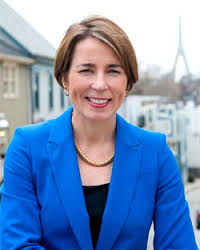Last Thursday, casino boosters from Somerset were expected to show up a Massachusetts Gaming Commission hearing and ask for yet another delay to get  their act together. Instead, they surprised the MGC and the rest of us by simply pulling out of the running. Crossroads Massachusetts never had a firm plan and, worse yet, didn’t have the money it needed. “Nothing surprises me in this business. We never know who is in or out until the last minute,”said an unfazed MGC Chairman Stephen Crosby.
their act together. Instead, they surprised the MGC and the rest of us by simply pulling out of the running. Crossroads Massachusetts never had a firm plan and, worse yet, didn’t have the money it needed. “Nothing surprises me in this business. We never know who is in or out until the last minute,”said an unfazed MGC Chairman Stephen Crosby.
The MGC also gave provisional permission for KG Urban Enterprises to move towards a June referendum, provided that KG Urban can turn in an application that is more than “substantially complete.” Former Foxwoods Resorts Casino CEO Scott Butera, who has popped up as the new frontman for KG Urban, gave the excuse that “We’re really just down to the final economic terms,” which inspired an unwontedly testy response from Crosby. “Our patience is not unlimited. Word to the wise: This has got to get moving quickly.” Butera’s presence is in itself surprising, partly because he was named commissioner of the Arena Football League last autumn and because he’s a turnaround expert, not a developer.
Meanwhile, the MGC and Penn National Gaming are taking fire from the Mashpee Wampanoags. The latter has reached out to Attorney General Maura Healey,  protesting Plainridge Park‘s planned use of electronic table games. I’ll admit to having been a bit surprised when Penn showed them off to local media, in a rather brazen flouting of the distinction between a table game and a slot. The MGC is taking refuge behind a hearing process which resulted in Plainridge being allowed 1,500 vaguely defined “gaming positions,” even though it is required to max out at 1,250 slots. Since the absence of tables was supposed to distinguish Plainridge from the Bay State’s three other casinos, it would seem as though the MGC tripped over the law in placating Penn.
protesting Plainridge Park‘s planned use of electronic table games. I’ll admit to having been a bit surprised when Penn showed them off to local media, in a rather brazen flouting of the distinction between a table game and a slot. The MGC is taking refuge behind a hearing process which resulted in Plainridge being allowed 1,500 vaguely defined “gaming positions,” even though it is required to max out at 1,250 slots. Since the absence of tables was supposed to distinguish Plainridge from the Bay State’s three other casinos, it would seem as though the MGC tripped over the law in placating Penn.
I’ll admit I can see Wampanoags’ viewpoint. Penn is trying to have it both ways: hosting table games and calling them slots. Also, in many jurisdictions (most notably Macao), electronic table games are used as a way of making up for dealer-intensive pits. The tribe says it will lose $30 million a year if the games are permitted. That argument is rather academic because the Wampanoags don’t qualify for a tribal casino, though they clearly have the means to influence the process in Massachusetts.
* Pushback against congressional attempts to ban online gambling is coming from a somewhat unexpected quarter — New York‘s state Senate Independent Democratic Conference. The solons oppose the legislation not only because they think it’s an issue to be decided at the state level but because it could imperil New York’s online lottery (a point on which Gov. Andrew Cuomo‘s administration agrees). They’re not endorsing Internet gambling, simply saying its approval should be the Legislature’s prerogative. The caucus wrote to New York’s congressional delegation that Restoration of America’s Wire Act “usurps New York’s ability to determine for itself what forms of gambling are authorized within the state, a right which New York and every other state has historically exercised.”

